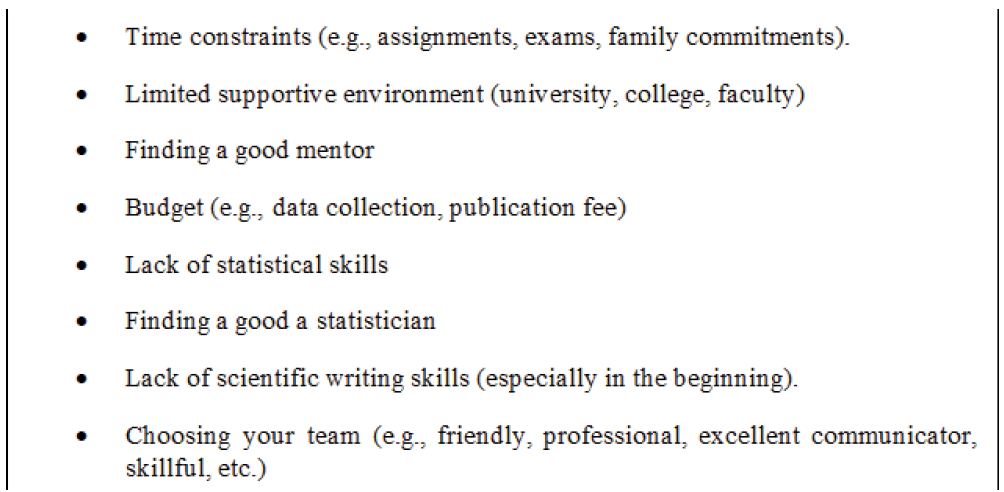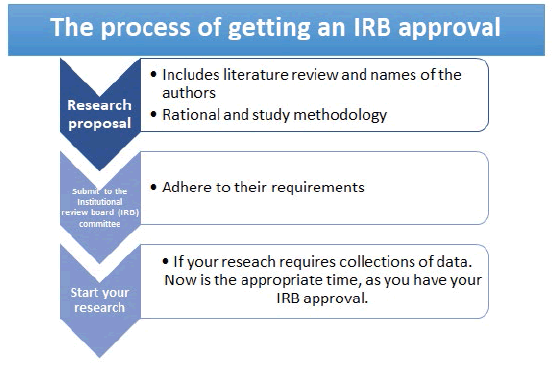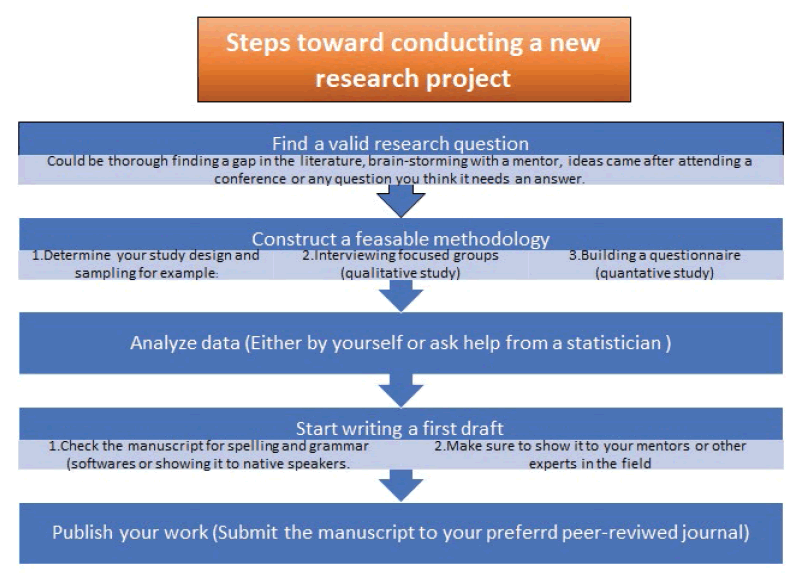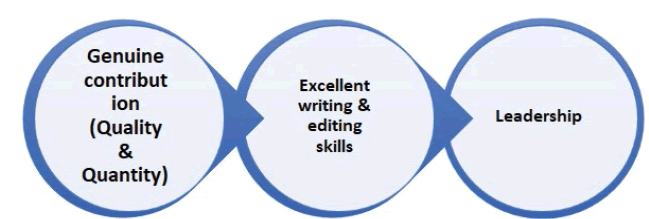Short Communication - International Journal of Medical Research & Health Sciences ( 2022) Volume 11, Issue 9
Student as a Researcher: A Perspective of a Saudi Medical Student
Amro K. Bin Abdulrahman*Amro K. Bin Abdulrahman, Department of Public Health, Ministry of Health, Saudi Arabia, Email: draka.1416@gmail.com
Received: 22-Aug-2022, Manuscript No. ijmrhs-22-72531; Accepted Date: Sep 22, 2022 ; Editor assigned: 22-Aug-2022, Pre QC No. ijmrhs-22-72531 (PQ); Reviewed: 25-Aug-2022, QC No. ijmrhs-22-72531 (Q); Revised: 05-Sep-2022, Manuscript No. ijmrhs-22-72531 (R); Published: 30-Sep-2022
Abstract
Research is one of the primary critical factors in exploring new knowledge. In my first year of medical school, I never thought students could conduct high-quality research. The lesson I have learned is that students should not underestimate their abilities. As with proper training and practice, they can be excellent researchers. Also, another lesson that I have learned is that one should always try to be opportunistic and take the initiative in research. This paper will provide a summary of the potential benefits of researching as a student, the challenges of research in undergraduate medical school, the steps to go through an IRB process in some institutes, the steps toward starting a new research project, a summary of the practical tips for learning research skills, authors’ order criteria, rules for an excellent corresponding author, the requirements of a good mentor, the standards of a good mentee, and a summary of the practical tips to publish in high-impact journals and critical messages. In conclusion, a student should know that research is a skill, so practice is necessary. Remember that research is a passion; once you learn it, you will enjoy it! Always give yourself a protected time to write a manuscript, write research ideas or follow up for publication.
Keywords
Student researcher, Medical student, Medical research, Saudi Arabia
Introduction
Research is one of the primary critical factors in exploring new knowledge. It is crucial for the continued development of the medical field and many other areas [1 ]. Physicians are required to have the ability to read scientific research to practice evidence-based medicine critically. Teaching them medical research skills can only be achieved [2]. Therefore, it is better to expose future physicians to theoretical and practical parts of essential research skills from the undergraduate level [3]. The research could help medical students acquire many skills. In particular, literature review, critical reading and thinking, scientific writing, time management, teamwork, conflict management, leadership, and communication [4-6]. When I was in the first year of medical school, I never thought that students could conduct research worthy of publishing. It was until we had an assignment in the learning skills course in the first semester of the first year. Everyone was allowed to choose their project. Our group decided to conduct qualitative medical education research. With the guidance of our supervisor and trials to learn from other published papers, we could complete the manuscript. Our supervisor was pleased and impressed with our performance. Therefore, he gave us an A on that assignment. Another learning opportunity that influenced my research interest was the following courses: Community medicine, research methods, and research electives. To learn research practically (from idea to publication), I highly recommend taking elective research courses under a mentor’s supervision. The following tips are based on my own research experience during medical school.
Practical Tips for Young Researchers
The lesson i have learned is that students should not underestimate their abilities. With proper training and patience, they can be excellent researchers. Another lesson I have learned is always to be opportunistic and take the initiative in research. For example, if there was a potential research project in one of the courses you have in medical school, then go for it. Another example, you heard that some of your colleagues are excellent in some research areas, learn from them. If one of the professors is an excellent mentor with an outstanding reputation, do not miss that opportunity and work with them on any potential project. Moreover, as a student, try to involve different research experiences, as you might be surprised at how they interest you. Therefore, you may become a pioneer in your specialty by discovering your interest at the undergraduate level. Fortunately, I could lead and correspond to more than ten articles throughout medical school. The most significant potential benefit of researching as a student is having excellent relationships with new colleagues and designated faculty members. Research is an excellent way to spend your free time, as it is practical and can be fruitful, especially when your team members support each other. Moreover, you may also maintain another good relationship with other supporting staff in scientific research. This is a crucial connection as it can act as a bridge for matching in residency training programs. Table 1 summarizes the most potential benefits of researching as a student.
| 1 | To have more connections with researchers (local, regional, and international). |
| 2 | Excellent opportunities (e.g., recognition, cooperating with others) |
| 3 | Improving your writing and reading skills |
| 4 | Gain critical appraisal skills and evidence-based medicine |
| 5 | Improving your statistical skills |
| 6 | Reviewing and editing skills |
| 7 | Literature review skills |
The time constraint is the most crucial challenge that students may encounter as researchers, as most medical students have a busy schedule (e.g., studying many courses and preparing for exams simultaneously). However, engaging in research at the undergraduate level seems to be delightful. However, students face difficulties and challenges while working on their research projects. Figure 1 summarizes the challenges of research in undergraduate medical school.
Any research project requires approval from the Institutional Review Board (IRB), which is a committee that ensures that every ethical consideration is taken into account. Figure 2 summarizes some institutions’ steps to going through an IRB process.
To build a research project, specific steps are required to do so. One of them is to have a valid research question. In addition, it is crucial to decide on the best methodology for your research. It is preferred to consult an expert or mentor regarding the research project. Try to develop a unique topic that has not been addressed thoroughly. After that, analyze your data and interpret them. Lastly, start writing your first draft. Figure 2 summarizes the steps toward conducting a new research project.
As a student, I wish someone had given me some simplified advice to excel in research. For example, I have found that reading many well-written papers significantly improves your understanding of research. Subsequently, it may help you write manuscripts more professionally, with enough practice and mentor feedback. Additionally, asking for input from experts in the field enables you to improve your writing and editing skills. You may also refer to the Strobe checklists of item that shouild be included in reports of obervational studies [7]. Summarizes the practical tips for learning research skills (Figure 3).
• Read published papers as much as you can
• Start to write with an expert or a mentor in research
• Ask for feedback from your peers or experts in the field
• Look for possible journals for publication and adhere to their guidelines
• Start reading about necessary research writing skills (e.g., books, online courses, articles)
• Keep practicing and learn from your mistakes
Authorship order is a common issue for most researchers worldwide-especially beginners. Someone may think, who deserves to be an author? .The best way is to refer to the International Committee of Medical Journal Editors as they stated the following: substantial contributions to the conception or design of the work; or the acquisition, analysis, or interpretation of data for the work; and drafting the work or critically reviewing it for important intellectual content; and final approval of the version to be published; and agreement to be responsible for all aspects of the work in ensuring that questions related to the accuracy or integrity of any part of the work are appropriately investigated and resolved [8]. The authorship order criteria are provided in Figure 4, One of the essential features of being the primary author is that you care about your project and provide great effort with high quality. Another feature is that you should have leadership skills or a hyperdynamic personality to keep your project moving forward [9].
One of the most crucial parts of getting accepted for publication is having an outstanding corresponding author. One of the skills that are required for a corresponding author is excellent communication skills. Also, most importantly, they are willing to sacrifice for the team on their own time. Sometimes, journals ask for urgent changes and authors’ responses in an overwhelming situation for the researcher. For example, a student-corresponding author could be requested to make significant changes to the manuscript while having upcoming final exams or licensing exams, or they could be in the middle of a vacation [10]. The rules for an excellent corresponding author are found in Table 2.
| 1 | Excellent English skills (reading and writing) |
| 2 | Accurate and has excellent time management skills |
| 3 | Coping and willingness to sacrifice for the team |
| 4 | Approachable and good communicator |
Mentoring for student researchers plays a vital role in helping them learn the required research skills more quickly. The most significant part of a mentor is helping the student become independent. Therefore, one day they could be able to do most or all of the research by themselves. In addition, the mentor should be approachable and have patience with their mentees [11-13]. The criteria for a good mentor are found in Table 3.
| 1 | Teach you to fish (To become independent) |
| 2 | Patient with a mentee |
| 3 | Friendly and approachable in communication |
On the other hand, the mentee should have some features that may help them learn more efficiently and effectively. For example, mentees should have the potential to learn and be self-directed learners. Table 4 provides the criteria for a good mentee.
| 1 | Enthusiastic and self-directed learner |
| 2 | Has the potential to learn |
| 3 | Has good English and writing skills. |
| 4 | Punctuality and commitment |
Although at the undergraduate level, students may not be required to publish in high-impact journals. However, hard-working students should aim high by trying to post some of their research projects in high-ranking journals. The following research supports the importance of involving undergraduate medical students and the student experience perspective in this matter [14-30]. Summarizes practical tips for publishing in high-impact journals.
• Excellent quality of research.
• Strong methodology.
• Good leadership of the project.
• Good corresponding author.
• Good mentor.
• Being always positive.
• Never lose hope regardless of the journal’s reply, and remember that the reviewer comments will strengthen your paper.
• Good teamwork.
• Adhering strictly to the author’s instructions of the journal and being cooperative in any change or request they might ask you after submission.
• A well-written manuscript.
• Grit and resilience.
• Learning and observing from recently published articles of the same desired journal.
• Lastly, Patience, Patience, Patience, as sometimes the process may take months or even years.
In conclusion, a student should know that research is a skill, so practice is necessary. Having a good mentor at the beginning of your research experience is recommended. To avoid future conflicts, it is preferable to have a written agreement about the authorship order as early as possible with your team members. If you find an excellent research partner or a great mentor, try to continue working with them. Always give yourself a protected time to write a manuscript, write research ideas or follow up for publication. Remember that research is a passion; once you learn it, you will enjoy it.
• Remember, research is a skill, so it needs practice.
• With proper training and patience, a student can be an excellent researcher.
• Having a good mentor at the beginning of your research experience is advisable.
• It is normal to struggle at the beginning of your research journey, and you may have conflicts with team members. It is preferable to have a written agreement about the authorship order as early as possible to avoid future conflict.
• In case of a significant conflict in the authorship order, it is better to refer it to a senior researcher.
• Taking hands-on courses, such as research elective courses, workshops, online courses, etc.
• Take advantage of any course you may take in medical school by creating research projects.
• It is common to get rejected from different journals (adapt to this fact).
• Always keep improving yourself, and never give up.
• If you find an excellent partner in research or a great mentor, try to keep working with them.
• Always keep a protected time for writing a manuscript, writing research ideas, or following up for publication.
• Research is a passion; once you learn it, you will enjoy it.
• It is better to master statistical analysis skills as it will make your life easier.
Declarations
Ethics Approval and Consent to Participate
Not applicable.
Consent for Publication
Not applicable.
Conflict of Interest
The author declared no potential conflicts of interest with respect to the research, authorship, and/or publication of this article.
Funding
The authors report no funding.
References
- Kasulkar, Arti A., et al. "Assessment of medical students' interest in research in Central India." Journal of Evolution of Medical and Dental Sciences. Vol. 2, No. 29, 2013, pp. 5375-82.
Google Scholar Crossref - Murdoch-Eaton, Deborah, et al. "What do medical students understand by research and research skills? Identifying research opportunities within undergraduate projects." Medical teacher, Vol. 32, No. 3, 2010, pp. 152-60.
Google Scholar Crossref - Noorelahi, Muatasim M., Abdulrahman A. Soubhanneyaz, and Khaled A. Kasim. "Perceptions, barriers, and practices of medical research among students at Taibah College of Medicine, Madinah, Saudi Arabia." Advances in medical education and practice, Vol. 6, 2015, p. 479.
Google Scholar Crossref - Burgoyne, Louise N., Siun O'Flynn, and Geraldine B. Boylan. "Undergraduate medical research: the student perspective." Medical education online, Vol. 15, No. 1, 2010, p. 5212.
Google Scholar Crossref - Nikan, Namiri K., et al. "Predictive Factor of Pre-Residency Publication on Career Academic Achievement in Urologists." Otolaryngology, Vol. 127, No. 1, 2017, pp. 15-21.
Google Scholar Crossref - Vujaklija, Ana, et al. "Can teaching research methodology influence students' attitude toward science? Cohort study and nonrandomized trial in a single medical school." Journal of Investigative Medicine, Vol. 58, No. 2, 2010, pp. 282-86.Google Scholar Crossref
- Kim, Seonji, et al. "Conducting and reporting a clinical research using Korean healthcare claims database." Korean Journal of Family Medicine, Vol. 41, No. 3, 2020, p. 146.
Google Scholar Crossref - Singhal, Shubha, and Bhupinder S. Kalra. "Publication ethics: Role and responsibility of authors." Indian Journal of Gastroenterology, Vol. 40, No. 1, 2021, pp. 65-71.
Google Scholar Crossref - Lee, N-J., T. G. Gambling, and P. Hogg. "Leadership in research." Radiography, Vol. 10, No. 1, 2004, pp. 69-73.
Google Scholar Crossref - Saposnik, Gustavo, et al. "Effect of English proficiency and research funding on acceptance of submitted articles to stroke journal." Stroke, Vol. 45, No. 6, 2014, pp. 1862-68.
Google Scholar Crossref - Svider, Peter F., et al. "Impact of mentoring medical students on scholarly productivity." International forum of allergy & rhinology, Vol. 4. No. 2. 2014.
Google Scholar Crossref - Behkam, Shadab, et al. "Students’ perception of educational environment based on Dundee Ready Education Environment Measure and the role of peer mentoring: a cross-sectional study." BMC medical education, Vol. 22, No. 1, 2022, pp. 1-8.
Google Scholar Crossref - Silvestre, Jason, and Bernard T. Lee. "Accessibility of Academic Plastic Surgeons as Mentors to Medical Students: Reply." Annals of Plastic Surgery, Vol. 75, No. 1, 2015, p. 124.
Google Scholar Crossref - Castro-Rodríguez, Yuri, et al. "Student participation in dental scientific journals in Latin America and the Caribbean." Journal of Oral Research, Vol. 8, No. 2, 2019, pp. 140-46.
Google Scholar Crossref - Paracha, Munizay, et al. "Scholarly impact of student authorship on surgical research." The American Journal of Surgery, Vol. 217, No. 1, 2019, pp. 175-79.
Google Scholar Crossref - Chapman, Stephen J., et al. "Promoting research and audit at medical school: evaluating the educational impact of participation in a student-led national collaborative study." BMC medical education, Vol. 15, No. 1, 2015, pp. 1-11.
Google Scholar Crossref - Al-Busaidi, Ibrahim S., Cameron I. Wells, and Tim J. Wilkinson. "Publication in a medical student journal predicts short-and long-term academic success: a matched-cohort study." BMC Medical Education, Vol. 19, No. 1, 2019, pp. 1-7.
Google Scholar Crossref - Amgad, Mohamed, et al. "Medical student research: an integrated mixed-methods systematic review and meta-analysis." PLoS one, Vol. 10, No. 6, 2015, p. 0127470.
Google Scholar Crossref - Guelich, Jill M., et al. "A gender gap in the next generation of physician-scientists: medical student interest and participation in research." Journal of Investigative Medicine, Vol. 50, No. 6, 2002, pp. 412-18.
Google Scholar Crossref - Mirmira, Raghavendra G. "The vulnerable physician-scientist." Molecular Endocrinology, Vol. 28, No. 5, 2014, pp. 603-06.
Google Scholar Crossref - Fang, Di, and Roger E. Meyer. "Effect of two Howard Hughes Medical Institute research training programs for medical students on the likelihood of pursuing research careers." Academic Medicine, Vol. 78, No. 12, 2003, 1271-80.
Google Scholar - Hunter, Anne‐Barrie, Sandra L. Laursen, and Elaine Seymour. "Becoming a scientist: The role of undergraduate research in students' cognitive, personal, and professional development." Science education, Vol. 91, No. 1, 2007, pp. 36-74.
Google Scholar Crossref - Lopatto, David. "Undergraduate research experiences support science career decisions and active learning." CBE—Life Sciences Education, Vol. 6, No. 4, 2007, pp. 297-06.
Google Scholar Crossref - Russell, Susan H., Mary P. Hancock, and James McCullough. "Benefits of undergraduate research experiences." Science, Vol. 316, No. 5824, 2007, pp. 548-9.
Google Scholar Crossref - Solomon, Solomon S., et al. "Impact of medical student research in the development of physician-scientists." Journal of investigative medicine, Vol. 51, No. 3, 2003, 149-56.
Google Scholar Crossref - Reinders, Jan J., Thomas JB Kropmans, and Janke Cohen-Schotanus. "Extracurricular research experience of medical students and their scientific output after graduation." Medical education, Vol. 39, No. 2, 2005, p. 237.
Google Scholar Crossref - Jacobs, Charlotte D., and Patricia C. Cross. "The value of medical student research: the experience at Stanford University School of Medicine." Medical education, Vol. 29, No. 5, 1995, 342-6.
Google Scholar Crossref - Burgoyne, Louise N., Siun O'Flynn, and Geraldine B. Boylan. "Undergraduate medical research: the student perspective." Medical education online, Vol. 15, No. 1, 2010. p. 5212.
Google Scholar Crossref - Griffin, M. F., and Sandip Hindocha. "Publication practices of medical students at British medical schools: experience, attitudes and barriers to publish." Medical teacher, Vol. 33, No. 1, 2011, pp. 1-8.
Google Scholar Crossref - Lawson McLean, Aaron, et al. "Twelve tips for teachers to encourage student engagement in academic medicine." Medical Teacher, Vol. 35, No. 7, 2013, pp. 549-54.
Google Scholar Crossref




